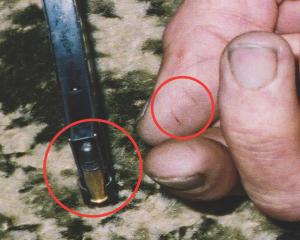
Mr Power said he had instructed officials to work with Mr Bain's lawyers to devise "a workable process" for the assessment of the claim.
Mr Bain was convicted in 1995 of murdering five members of his family in Dunedin. In 2007 the Privy Council quashed his convictions on the grounds of a substantial miscarriage of justice and ordered a retrial.
In June last year he was found not guilty at a retrial.
Mr Bain's lawyers wrote to Mr Power on March 25 notifying him of a claim for compensation. They wrote a second letter on April 9 regarding the process for their claim.
Mr Power replied today, outlining the established test that claims for compensation must meet.
He said in a statement that under Cabinet guidelines adopted in 1998, the category of claimants who were eligible for compensation was limited to those who had their convictions quashed on appeal without order of retrial, or who had received a free pardon.
To receive compensation, eligible claimants had to establish their innocence on the balance of probabilities.
Mr Power said that at the same time as adopting those guidelines, Cabinet decided the Crown should have residual discretion to consider claims falling outside the guidelines in "extraordinary circumstances" where it was in the interests of justice to do so.
"Mr Bain's claim falls outside the guidelines because he was acquitted following a retrial," Mr Power said.
"However, it is open to him to meet the extraordinary circumstances test."
Mr Power said claims under residual discretion were assessed on a case-by-case basis.
"At a minimum, and consistent with the Cabinet guidelines applying to eligible claimants, a claimant must establish innocence on the balance of probabilities," he said.
"But for claims that fall outside the Cabinet guidelines something more is required that demonstrates that the circumstances are extraordinary.
"I have instructed officials to work with Mr Bain's lawyers to devise a workable process for the assessment of Mr Bain's claim."
Mr Power told reporters an example of "extraordinary circumstances" could be irrefutable DNA evidence, or something like an admission by the police that there had been a wrong assessment.
He said proving innocence on the balance of probabilities was different to a verdict of not guilty, and the bar was high.
Mr Bain would have to prove that to a third party, probably a QC, or it could be someone from outside New Zealand's jurisdiction.
Mr Power said he thought it would take a long time.
"It wouldn't be the sort of matter that could necessarily be determined in a matter of months," he said.
"If you are talking about meeting that standard of proof you are talking about a fairly involved process."




